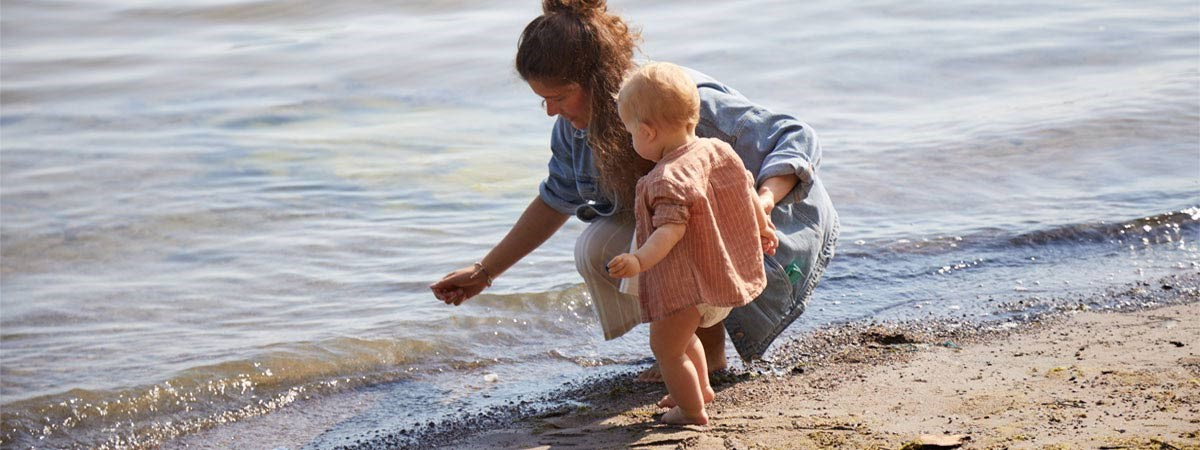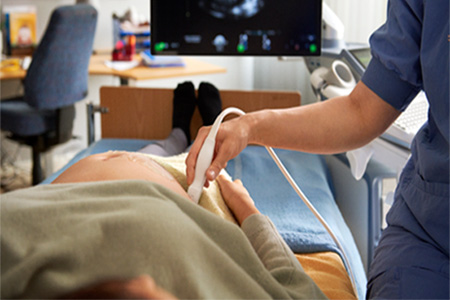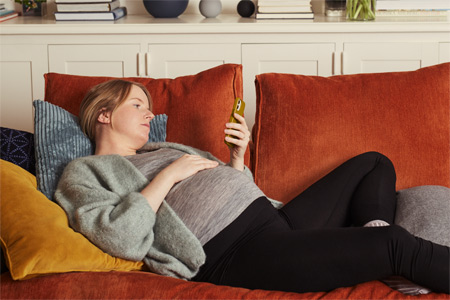
Air travel and other travel during pregnancy
Luckily, it's fine to travel when pregnant and you can travel by plane until around week 36 if the pregnancy is normal. Try to always wear support stockings on long trips, arrange for insurance and vaccination and bring a first aid kit.
It is important to get up and move around on long trips.
Below you can find useful information and advice on travelling while pregnant.
Different airlines may have different rules regarding pregnant women
Contact the airline or airlines you will be travelling with to find out if they have any special rules regarding pregnant women. Airline rules are primarily to do with not being under obligation to land if the woman goes into labour. They are generally not to do with it being risky for you or the baby to fly.
SAS allows pregnant women to fly until four weeks before the estimated due date. From two to four weeks before the due date, your trip must be approved by SAS's medical department and you may not book flights longer than four hours. You may not fly with SAS during the two last weeks before your estimated due date.
Special rules for women flying while pregnant with twins or triplets
If you are pregnant with twins or triplets and want to fly during the last 12 weeks before the due date, SAS requires that you fill in a form to apply for their approval before booking your flight. In this case too, your flight may not be longer than four hours. Women carrying twins or triplets may not fly with SAS at all during the last eight weeks before the due date.
Make sure you have adequate travel insurance
Before travelling, it is especially important to find out how your travel insurance covers pregnant women, for instance if you should need medical care during your trip.
• Most home insurance policies do not cover pregnancy-related medical costs after week 28 of the pregnancy. If you give birth prematurely and the child needs medical care abroad or to be transported home, you might have to pay the costs yourself. The terms and conditions can vary, so contact your insurance company to find out what applies to you and whether you need supplemental insurance.
• To receive medical care in some countries, you must have a European Health Insurance Card. However, certain things, such as air medical services, are not covered by this card. That requires a private insurance policy. You can apply for a European Health Insurance Card from the Social Insurance Agency.
• Nordic citizens do not need a European Health Insurance Card to get medical care in any of the Nordic countries. The Nordic countries also have an agreement that covers expenses for emergency repatriation.
• Sweden also has special agreements with some other countries regarding medical care. Contact the Social Insurance Agency for more information about the rules that apply in different countries.
Tips and advice on flying during pregnancy
If you are going on a long trip while pregnant, think a little extra about what you will need on the plane. Here are some helpful tips.
• Get up and move at regular intervals and wear support stockings to prevent your legs and feet from swelling and reduce the risk of thrombosis.
• You may want to ask for an aisle seat when booking your ticket, to give you more room and freedom to get up.
• Drink plenty of liquid. It is easy to get dehydrated on a plane because the air is often dry.
• Bring earplugs and a sleep mask to help you rest during the flight.
• Bring a nasal spray if you tend to get a blocked nose or swollen mucous membranes.
Advice for avoiding infection when travelling while pregnant
If possible, pregnant women should avoid going to countries where there is a high risk of contagious diseases. Speak to your midwife about your travel plans if you need advice. Also remember to bring a copy of your journal on your trip if your midwife advises it.
• If in the slightest doubt, avoid drinking tap water and buy bottled water instead.
• Take extra care to wash your hands, and don't use shared towels.
• Avoid rubbing your eyes unless you've just washed your hands. It is easy to contract infections via the mucous membranes of your eyes.
• Bring hand disinfectant and use it frequently. You can buy it from a chemist in a travel-sized bottle.
• Only eat food that is thoroughly cooked. Avoid fish, chicken or shellfish that you suspect may not be fresh.
• Try to eat freshly cooked food, and avoid buffets if you suspect the food may have been out for a long time. Read more about foods to avoid during pregnancy.
• Avoid fruit and salad that may have been rinsed in tap water. This only applies to certain countries. Peelable fruit is a good option.
• Some common objects that collect a lot of bacteria include money, handrails, door handles, computer keys and buttons, for instance in lifts. In toilets, the flush handle or button is the biggest source of bacteria.
• Change your travel plans if you discover that your chosen destination carries a high risk of danger or contagion.
Things pregnancy women should have in their first aid kit
It is always advisable to bring a carefully stocked first aid kit when travelling, especially for pregnant women. Here are some things to put in it.
• Nasal spray.
• Saline eye drops if you tend to get dry mucous membranes.
• Mosquito repellent approved for use during pregnancy. Read the package or ask for information at your pharmacy.
• Sun cream to protect you from strong sunshine. There is a higher tendency to get pigment spots during pregnancy.
• Medicine for diarrhoea or constipation approved for pregnant women.
• Painkillers approved for pregnant women.
• Medicine for heartburn.
• Plenty of liquid if you are travelling to a hot country.
• Antifungal medicine for vaginal yeast infection. Pregnant women are more prone to yeast infection, especially in a hot climate.
• Breast pads to put in your bra if your breasts are leaking in the late stages of pregnancy.
Also read about Travelling with small children

